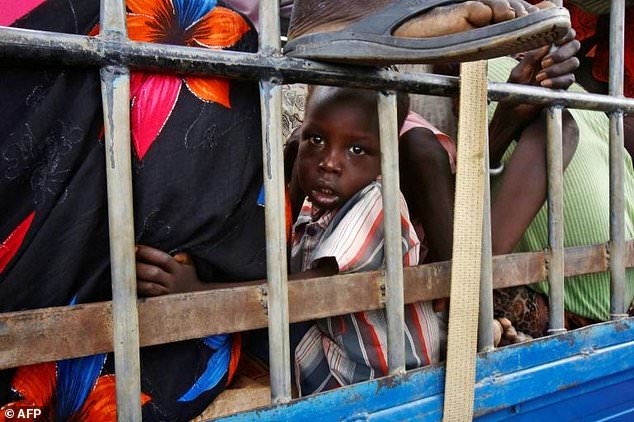65.6 million people displaced globally: UN reports

Devastating conflicts, violence and persecution in Syria, South Sudan and elsewhere left a record 65.6 million people uprooted from their homes by the end of 2016, the UN said Monday.
That number marks a jump of just 300,000 from the end of 2015, but is more than six million higher than at the end of 2014, according to a report published by the UN refugee agency.
This is “the highest figure since we started recording these figures,” UN High Commissioner for Refugees (UNHCR) Filippo Grandi told reporters ahead of the report launch.
“By any measure, this is an unacceptable number, and it speaks louder than ever to the need for solidarity and common purpose in preventing and resolving crises,” he said.
The figures released ahead of World Refugee Day showed that a full 10.3 million of the world’s displaced people fled their homes last year alone, including 3.4 million who crossed international borders to become refugees.
– ‘Every three seconds’ –
“This equates to one person becoming displaced every three seconds — less than the time it takes to read this sentence,” UNHCR pointed out in a statement.
There are more than 20 million more displaced people in the world today than just five years ago, Norwegian Refugee Council (NRC) chief Jan Egeland said Monday.
Until 2012, the global displacement number had for years remained relatively stable at around 40 million people, but “we now seem to be landing on a new horrific normal,” he told AFP.
Most people who have been forced from their homes flee within their own country, and are defined as internally displaced people, or IDPs.
At the end of 2016, there were some 40.3 million IDPs in the world, down slightly from 40.8 million a year earlier, with Syria, Iraq and Colombia accounting for the greatest numbers.
Another 22.5 million people — half of them children — were registered as refugees last year, the UNHCR report showed, pointing out that this is “the highest level ever recorded”.
Syria’s six-year conflict alone has sent more than 5.5 million people seeking safety in other countries, including 825,000 last year alone, making it the world’s biggest producer of refugees.
Along with the 6.3 million Syrians displaced inside the country, these numbers show that a nearly two thirds of all Syrians have been forced from their homes, the report said.
At the same time, desperately needed funding for humanitarian aid in the country has begun to dwindle, Grandi said.
– Forgotten crisis? –
The Syrian conflict, which has killed more than 320,000 people, “is becoming a forgotten crisis,” he warned.
The UN refugee chief meanwhile voiced alarm over the rapidly deteriorating situation in South Sudan, calling it the world’s “fastest growing refugee crisis and displacement crisis.”
South Sudan’s civil war, which began in December 2013, has left tens of thousands dead and forced a total of 3.7 million people from their homes — nearly a third of the population.
The refugee population from the world’s youngest country swelled 85 percent last year to reach 1.4 million by the end of 2016, the UNHCR report showed.
That figure has ballooned by a further half million people since then, the agency said, stressing that most of the refugees have left since the “disastrous breakdown of peace efforts” last July.
Syria and South Sudan were far from the only countries where people were uprooted en masse, with Monday’s report also pointing to large-scale displacements in Afghanistan, Iraq and Sudan, just to name a few.
And nearly 70 years after Palestinians first fled today’s Israel, some 5.3 million Palestinians are currently living as refugees — the highest level ever recorded, UNHCR said.
Monday’s report also pointed out that, despite huge focus on Europe’s migrant crisis, it is poorer countries that host most of the world’s refugees.
A full 84 percent of refugees are living in low- and middle-income countries like Lebanon, Pakistan, and Ethiopia the UNHCR said, decrying a “huge imbalance”.
Uganda, for instance, has over the past year received more than 2,000 refugees from South Sudan each and every day — more than many European countries took in a year, NRC chief Egeland pointed out.
The impression that refugees mainly go to wealthy countries “is a complete myth,” he said.










0 Comments